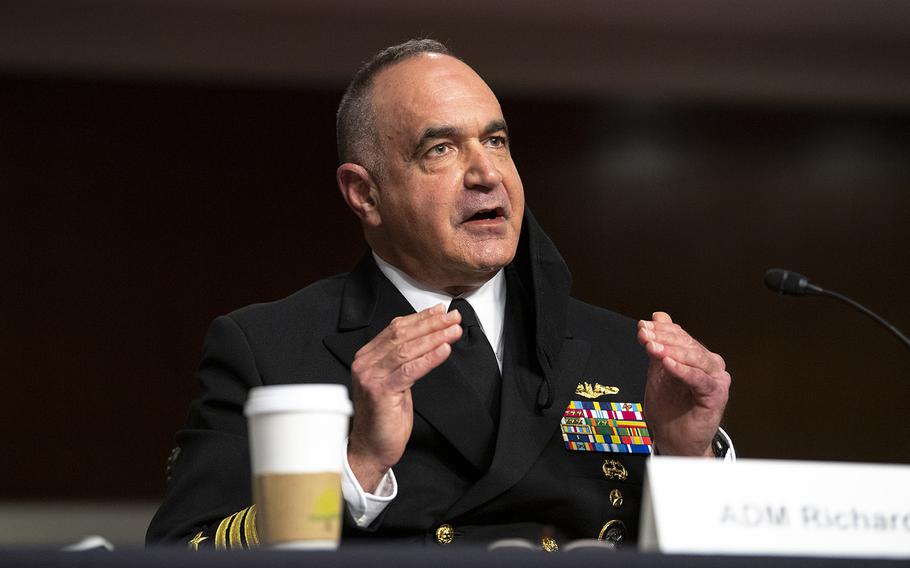
Adm. Charles Richard, commander of U.S. Strategic Command, testifies before the Senate Armed Services Committee in Washington, D.C., April 20, 2021. (EJ Hersom/Department of Defense)
WASHINGTON — The intelligence and nuclear weapons work within U.S. Strategic Command requires higher clearance levels than many other military components and has helped eliminate extremism from its forces, Adm. Charles Richard told reporters Thursday at the Pentagon.
“Look, the standard is really clear — we don’t tolerate extremism,” said Richard, the commander of STRATCOM. “My forces live up to an even higher standard based on their responsibility.”
On Tuesday, Richard told members of the Senate Armed Services Committee that he was “very confident that the number of extremists in my forces is zero” because of the screening process necessary to serve in the force.
“Every person in my organization has to have a security clearance, for starters, right?” Richard told the committee members. “And when you fill that form out — and I’ve been filling it out for 40 years — there is an extensive battery of questions designed to get after that very point.”
However, it remains unclear Thursday whether the clearance process is effective at weeding out extremists. At least one man with a secret security clearance at Naval Weapons Station Earle in New Jersey was indicted on charges related to the Jan. 6 riot at the Capitol, according to federal court documents.
Richard’s comments came as the Pentagon launches a new panel to study extremism within the military ranks, including the ability of the services to weed out recruits with extremist views and whether military law or regulations should be amended to address the issue, the Defense Department announced April 9.
His comments also follow department-wide stand downs meant to address extremism within the services, which Richard said STRATCOM completed without identifying any extremists among its ranks.
“If you are there, then you are hiding it very well and it is just a matter of time before I get to you,” the admiral said of extremists in his command. “You are either on team Constitution or you are not — and if you’re not, you have no place in my forces.”
Still, Richard noted that he is “not naïve,” adding that the efforts to keep out extremists are part of “a longer process.”
“I don’t think I’m immune to this,” Richard said. “We are making sure that those procedures — security clearance being one of them — are being rigorously executed.”